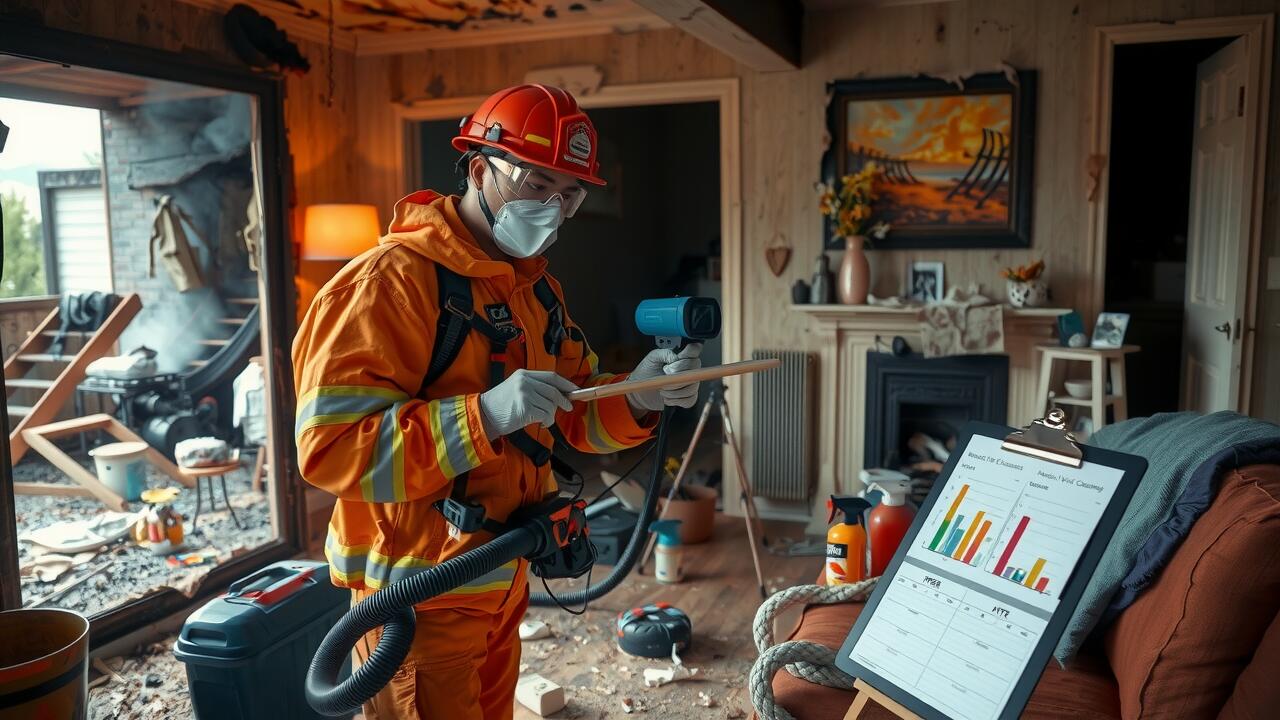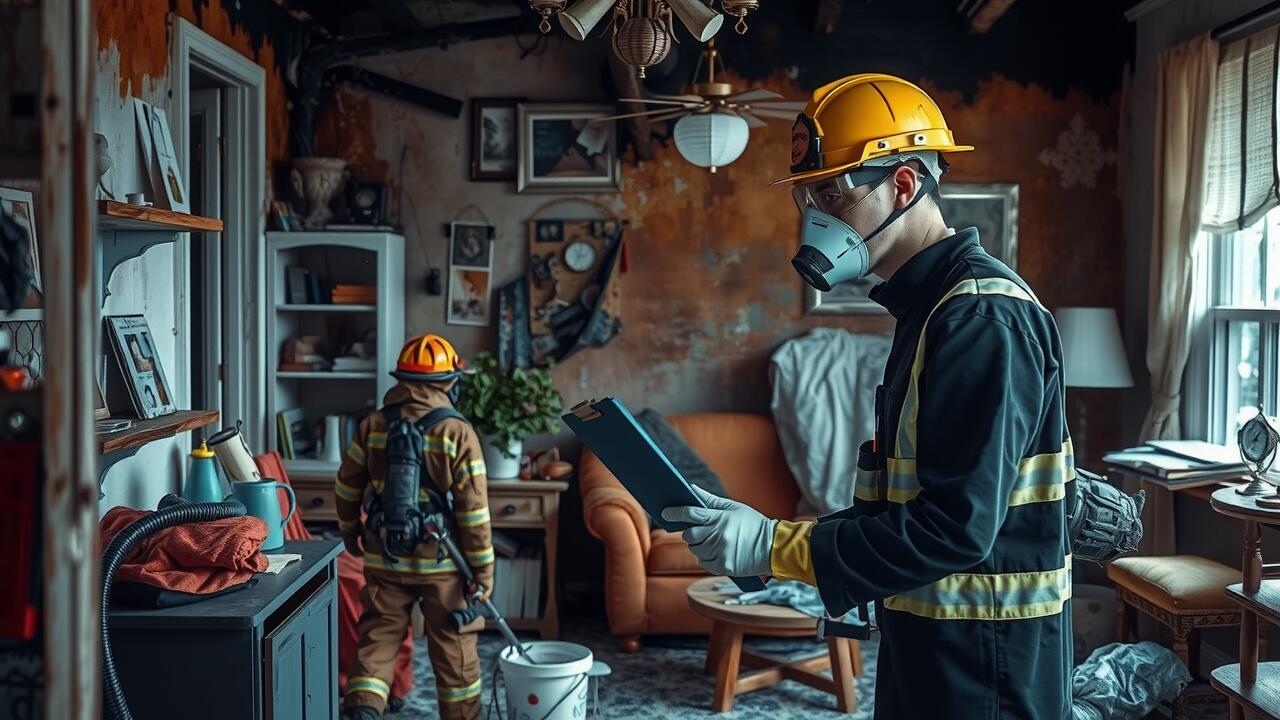
Electrical Safety Measures
Electrical safety measures are crucial for preventing fire hazards in the home. Regular inspection of electrical systems is essential to identify wear and tear. Look for frayed cords, outdated wiring, or overloaded outlets. These issues can lead to overheating and potential fires. Using devices certified by recognized testing laboratories can also provide reassurance that they meet safety standards. Additionally, it’s important to turn off any devices when not in use to minimize risks.
In areas where electrical work is needed, hiring a qualified electrician is the best practice. They can ensure installations comply with local building codes and safety regulations. Homeowners should also consider the benefits of installing smoke detectors and fire alarms throughout the house. Routine testing and battery changes can keep these devices in working order, providing peace of mind. In the unfortunate event of a fire, knowing that professional services like Fire & Smoke Damage Restoration in Obetz, Ohio, are available can help facilitate recovery.
Identifying Electrical Fire Hazards
Electrical fires often stem from overlooked hazards in your home. Damaged wiring or outdated electrical systems can lead to potentially catastrophic situations. Inspect outlets and extension cords for frayed edges or exposed wires. Overloaded circuits can also pose significant risks, particularly in older homes where the electrical infrastructure may not meet modern standards.
Another common hazard arises from improper use of appliances. Ensure all devices are rated for the current they draw, and avoid using multiple high-wattage appliances on the same circuit. Routine maintenance, such as checking for signs of overheating in plugs and switches, can mitigate risks significantly. For residents facing the aftermath of electrical fires, seeking professional help for Fire & Smoke Damage Restoration in Obetz, Ohio can be crucial in ensuring safety and recovery.
Storing Flammable Materials Safely
Proper storage of flammable materials is crucial in minimizing fire risks within the home. Keep items such as gasoline, paint, and cleaning supplies in approved containers. These containers should be tightly sealed and stored away from heat sources and ignition points. Designate a specific area for storage that is well-ventilated and compliant with local fire codes.
Additionally, cabinets or rooms used for storing flammable materials must be clearly labeled. Avoid overstocking in these areas to maintain accessibility in case of an emergency. Homeowners should regularly inspect these storage spaces to ensure materials remain intact and safe. In the event of an incident, professional assistance, such as Fire & Smoke Damage Restoration in Obetz, Ohio, is essential for effective recovery and management.
Guidelines for Proper Storage
Proper storage of flammable materials is crucial to preventing fire hazards in the home. Store items like cleaning supplies, gasoline, and propane away from heat sources and in cool, well-ventilated areas. Ensure that these materials are kept in their original containers with labels intact. It is advisable to use cabinets with locks to keep these substances out of reach of children and pets.
Always be mindful of the quantity of flammable materials stored. Limit the amount you keep on hand to what is necessary for household tasks. Consider designating a specific area for these items to minimize risk. For those living in areas prone to wildfires, consulting local fire safety guidelines can help. If a fire incident occurs, remember that services for Fire & Smoke Damage Restoration in Obetz, Ohio, are available to assist you.
Landscaping for Fire Prevention
Landscaping can play a significant role in reducing the risk of fire damage around your home. Selecting fire-resistant plants is an essential step in creating a defensible space. Consider using native species that are adapted to your local environment. These plants often require less water and care, making them both sustainable and effective in fire-prone areas. Keeping plants well-maintained and healthy can minimize the amount of dry vegetation that could fuel a fire.
In addition to choosing the right plants, the layout and spacing of landscaping elements matter. Create defensible zones by maintaining space between shrubs, trees, and your home. This strategy reduces the chances of fire spreading quickly. Regularly clearing dead leaves, branches, and other debris from these areas will further enhance your home’s fire safety. Consult professionals for advice on fire-resistant landscaping and fire prevention strategies, especially if you live near areas prone to wildfires. For residents seeking restoration services after a fire incident, Fire & Smoke Damage Restoration in Obetz, Ohio, can provide necessary assistance.
Choosing Fire-Resistant Plants
Selecting fire-resistant plants can greatly enhance your landscaping’s resilience against potential wildfires. Certain species, such as lavender, succulents, and some ornamental grasses, have lower flammability due to their high moisture content and chemical composition. Incorporating these plants into your garden can create a beautiful and safer environment, especially in regions prone to fire hazards.
In addition to choosing the right plants, proper spacing and maintenance play vital roles in fire prevention. Keeping plants well-watered and ensuring adequate spacing between them can minimize the spread of fire. A professional service specializing in fire & smoke damage restoration in Obetz, Ohio can provide further insights into landscape management tailored to local conditions.
FAQS
What are common electrical fire hazards to look out for in my home?
Common electrical fire hazards include frayed wires, overloaded outlets, malfunctioning appliances, and the use of extension cords as permanent wiring. Regularly inspecting your electrical system and devices can help identify these hazards.
How can I store flammable materials safely at home?
Flammable materials should be stored in a cool, dry place away from heat sources. Use appropriate containers and label them clearly. Ensure that items such as gasoline, propane, and cleaning agents are stored in well-ventilated areas.
What types of plants are considered fire-resistant for landscaping?
Fire-resistant plants typically include those that are less likely to ignite and can withstand heat. Examples include succulents, certain varieties of ornamental grasses, and plants with high moisture content like lavender or aloe vera.
How can I reduce fire risk when using electrical appliances?
To reduce fire risk, ensure that appliances are in good working condition, unplug them when not in use, avoid overloading circuits, and keep them away from flammable materials. Regular maintenance can also help prevent malfunctions.
What additional measures can I take to prevent wildfires near my home?
To prevent wildfires, maintain a defensible space around your home by clearing dry vegetation, using fire-resistant landscaping, and creating buffer zones. Additionally, ensure that your roof and gutters are free of debris to reduce fire risks.
